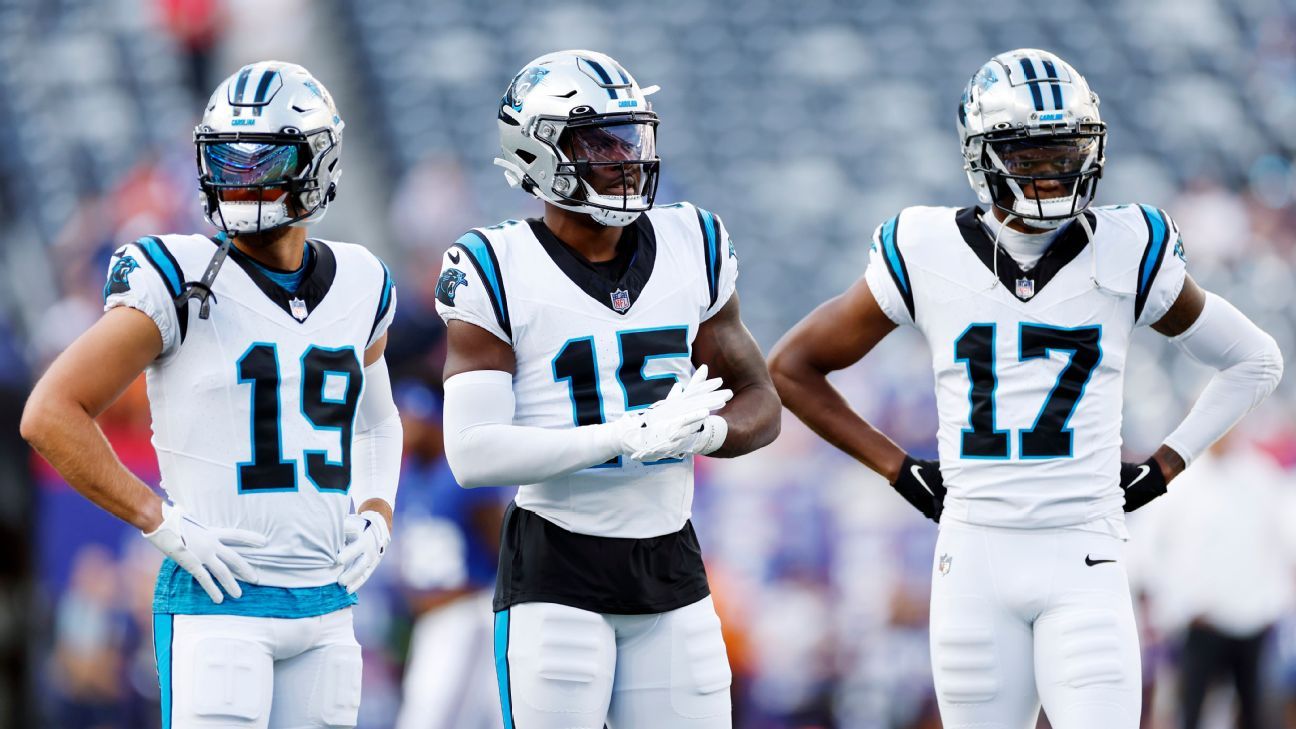Dressed to the 10s: Small numbers seen as slim
Written by I Dig Sports
For decades, some NFL wide receivers have said they look better when they wear low numbers compared to the traditional range of 80 to 89. Now there is scientific research to back up that seemingly superficial sentiment.
A peer-reviewed study by UCLA researchers found that perception can be influenced by the associations made between numbers and size through the brain's cognitive process. The study, which will be published this week in the journal PLOS One, exposed subjects to images of different football jersey numbers to measure their perception of the person wearing it. The smaller the number, the more likely the subject was to perceive a slimmer player.
"We were surprised that there is a connection and then even more so surprised that the connection is so robust," said Ladan Shams, a cognitive neuroscientist who is a professor of psychology, neuroscience and bioengineering at UCLA. "It's not just when we contrasted large numbers with small ones. When we looked at the relationship between the ratings of size and slenderness and the numbers, [and] we did a very small range, like from 17 to 19, we see a very robust correlation."
Shams' interest in the subject piqued after conducting an interview for a 2019 ESPN story on the modern-day migration of NFL wide receivers into numbers between 10 and 19, a process started by former New York Jets receiver Keyshawn Johnson in 1996. The NFL formally relaxed its rules for eligible receiver numbers in 2004, and by 2019, about 80% of receivers were wearing numbers between 10 and 19. (Following a series of subsequent rule changes, receivers in 2023 can wear numbers from 0-49 and 80-89.)
Receivers interviewed by ESPN at the time offered various explanations for their preference for lower numbers, but many described the image they believed a number between 10-19 would communicate.
Former NFL wide receiver Emmanuel Sanders said numbers in the 80s were for "big guys" who are "like 6-2, 6-3" and that it would "just look weird" for smaller receivers to wear them.
Johnson suggested that numbers influence the perception of players at other positions. He cited Hall of Fame quarterback Brett Favre, whose No. 4 "gave you the illusion that he could run and do a lot of things, even though he couldn't." In contrast, Johnson suggested that the perception of then-Jets quarterback Sam Darnold's athleticism was diminished by wearing No. 14.
ESPN reached out to Shams to understand if there was a psychological reason why lower numbers would influence the perceptions of the players who wore them. Shams hypothesized that human brains could make the connection between a small number and a slender body type but said there was no accepted research to back up the assertion.
During the COVID-19 pandemic, Shams turned her attention toward testing that hypothesis. Her research group did two separate exercises, one virtually and then a second in person. Part of the experiment asked subjects to rate players with various numbers on a scale of "very slender" to "very husky." According to the study, "Observers perceived athletes with low jersey numbers as more slender compared to athletes with high numbers."
In essence, researchers found that associations the brain makes over time with numbers -- say, that a 20-pound bag of rice is thicker than one that is 5 pounds -- can influence perception in other arenas.
The results have application far beyond the way football players are perceived. According to Shams, they can inform how the brain establishes implicit bias in decision-making.
"If the brain is so good at finding these patterns and regularities in numbers and size," Shams said, "then the brain is also very good at finding other kinds of relationships, and those relationships are what is believed to give rise to implicit bias. The brain is a learning machine and picks up on all of those statistical regularities without our knowledge. Those create bias and expectations in our brain without our knowledge. In other domains, those could influence decision-making.
"It basically shows the power of learning in the brain and how that gives rise to implicit bias and how we can harness the same learning mechanisms to undo those implicit biases."















 Phone: (800) 737. 6040
Phone: (800) 737. 6040 Fax: (800) 825 5558
Fax: (800) 825 5558 Website:
Website:  Email:
Email: 






